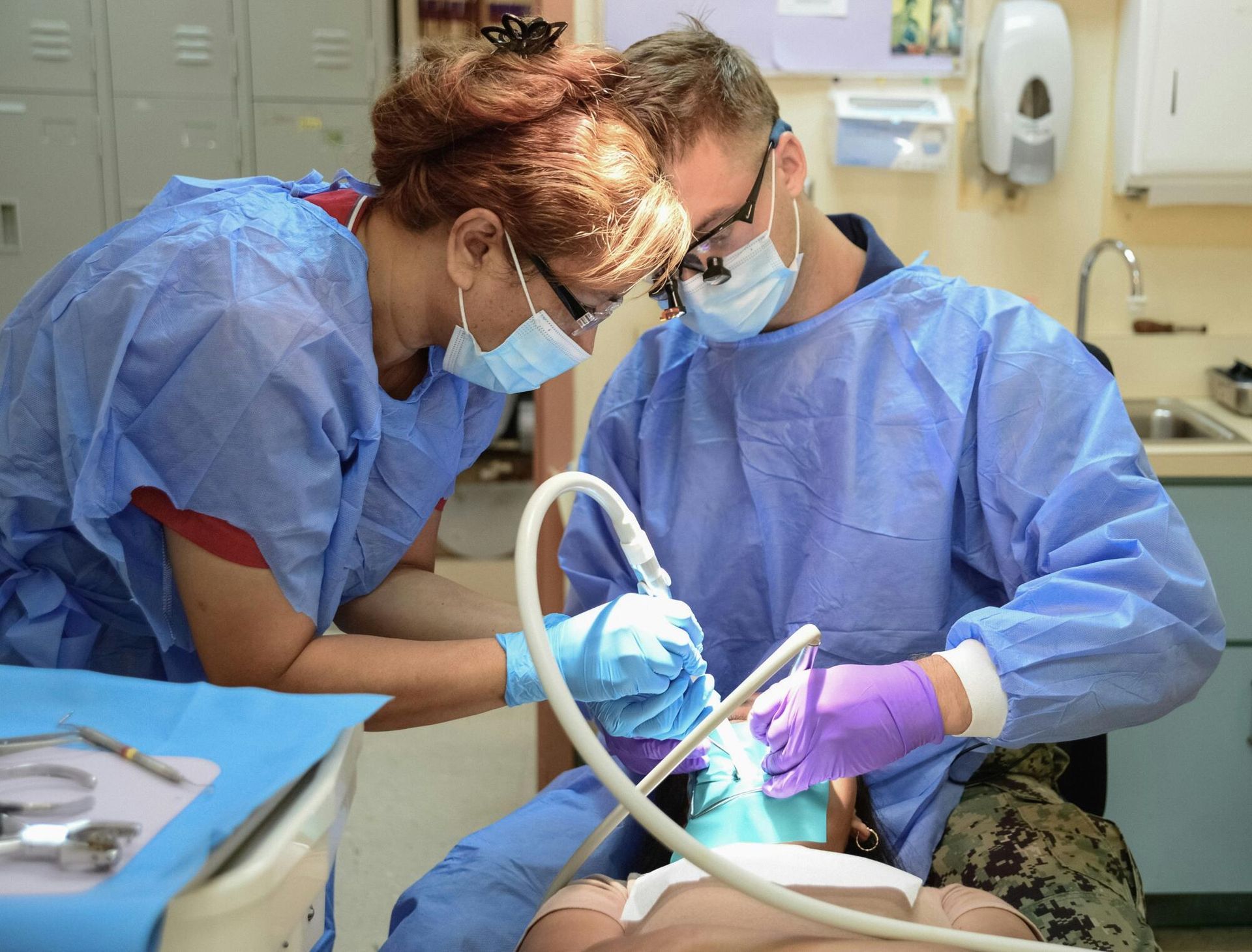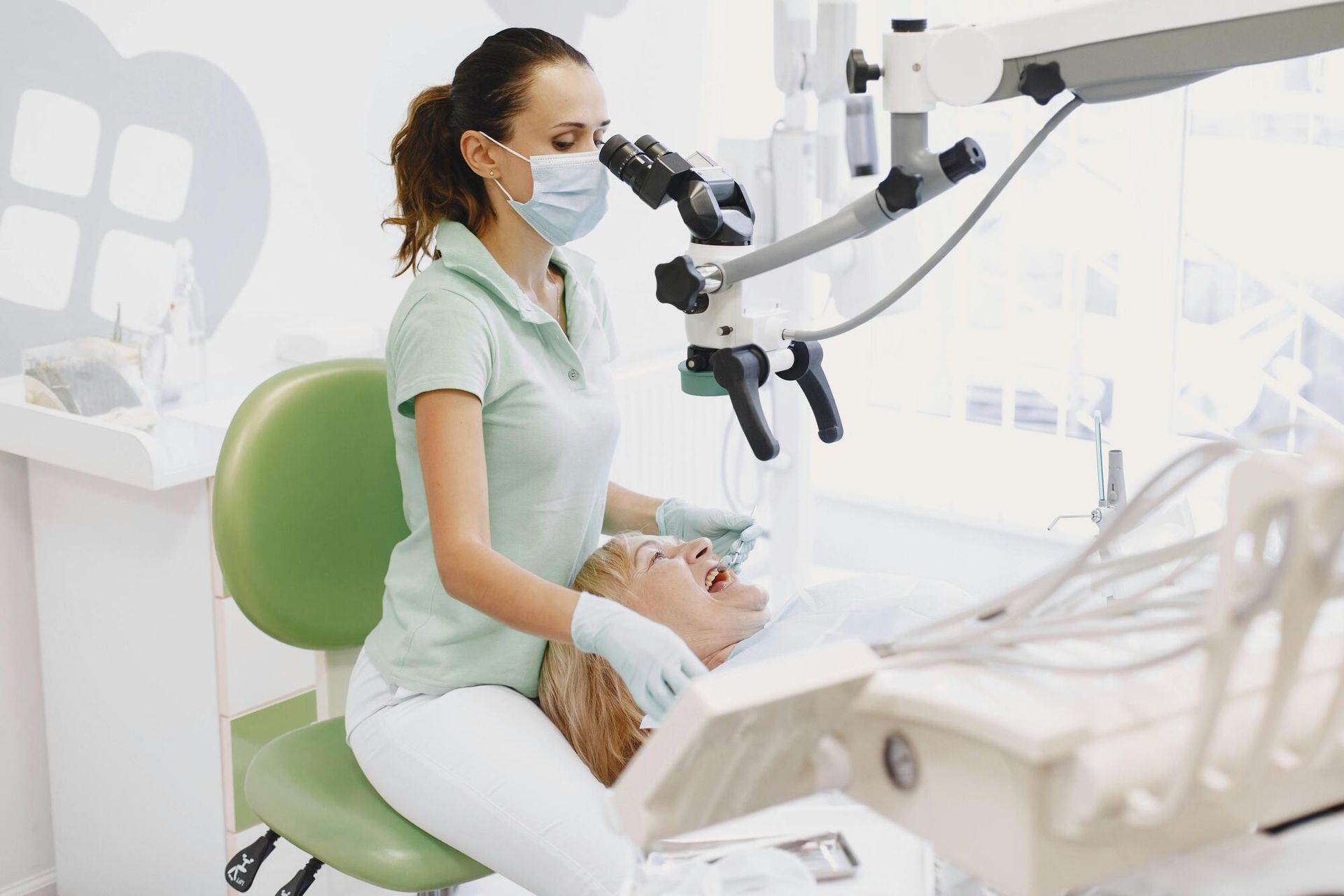How Is TMJ Detected?

If our mouths had a speedometer, we'd be clocking in thousands of proverbial "steps" every single day. We use our jaw to eat, to speak, to yawn, to kiss; the list goes on and on. It's no wonder that the constant use may cause basic functions to become disrupted or damaged.
When damage occurs and it becomes difficult to eat or talk, one such condition may be the culprit: TMJ. Have you ever found yourself typing "TMJ specialist near me" in the search bar in hopes of finding some relief? If so, then look no further.
In this article, we'll explore what detection of TMJ looks like and how a TMJ specialist can help. Keep reading to learn more.
What Is TMJ?
There's a hinge joint located in the jaw called the temporomandibular joint or TMJ. We use it every single day to complete basics functions like talking, eating, and yawning. These frequent movements cause it to be the most used joint in our body.
When an injury occurs, functions of the jaw such as chewing or talking can be difficult. Injury to this joint can lead to what is known as a temporomandibular disorder or TMD. TMD refers to any occasion in which the TMJ experiences dysfunction.
Let's take a look at how it's detected.
Damage and Detection
There are a few things that can cause damage around this joint. Common ones may include:
- Arthritis
- External trauma to the jaw
- Teeth grinding
- Overuse of the jaw
- Improper bite alignment
In general, there are prevailing symptoms that manifest such as a tender jaw, headaches, or pain while eating. These symptoms are the first indicator that something is wrong. Your dentist will likely order X-rays to determine issues.
Prior to X-rays, your dentist can perform a quick test to check for pain or tenderness in the jaw. They can also confirm whether the signs of teeth grinding are present.
Additional Tests
Your dentist will likely also check for the following:
- Properly working jaw that doesn't lock
- Listening for clicks or pops coming from the jaw
- Uneven teeth surfaces
- Irregularities in shoulder or back muscles
More intensive scans like CT scans or MRI scans may be needed to check the positioning of the jaw or bone details. In the case of more intensive scans like this, your dentist may refer you for treatment with an orthodontist or oral surgeon.
Warning Signs
What then are the major indicators that may be prompting you to do a Google search for the "best TMJ specialist near me"? One of the most apparent indicators is pain.
Consistent pain in your jaw is a warning sign that something is off. Anything from tension in the neck to sinus headaches can stem from untreated TMJ. When dysfunction occurs due to TMD, general muscles such as chewing muscles get overworked or overused.
How so?
Our chewing muscles are attached to the jaw via the eye socket. When the chewing muscles get overused, pain manifests in the form of a headache or migraine. This sort of inflammation can also irritate your vision.
Uncommon Signs
While pain may be the most apparent indicator, there are additional symptoms that might be harder to connect to TMJ. These symptoms may include:
- Ringing in the ears
- Dizziness
- Impediments to speech
- Eye twitches
- Light sensitivity
- Muscles twitches
These symptoms may not initially spring to mind as TMJ-related as they are unconnected to the jaw. However, if you suspect any issues, your doctor or dentist will complete an examination to determine if it's stemming from joint issues.
Treatment
Not all temporomandibular disorders are inherently painful. Some cases are mild and present little pain. In this instance, at-home remedies to improve the mobility of the jaw may be suggested.
Suggested remedies may include:
- Apply a cold or hot compress
- Work on posture improvement
- Try to reduce stress via meditation or yoga
- Avoid eating hard-to-eat foods
- Utilize a nightguard while sleeping
- Utilize an over-the-counter anti-inflammatory
When you find yourself searching for something such as "TMJ pain specialist near me," you may need something more intensive than an at-home treatment.
Other Procedures
If the pain you're feeling is not getting any better with at-home therapies, professional support is your next step. Depending on the root issue of the TMD, suggestions for treatment will of course vary.
If your TMD is stemming from bite alignment issues, orthodontic treatment through aligners or braces may be necessary to correct bite alignment. Muscle relaxers or prescription pain medication may be prescribed for pain management, along with physical therapy to improve jaw mobility.
Other treatment options include:
- Acupuncture
- Chiropractic care
- Strength training
- Nightguard therapy
- Counseling
Simply plugging in "chiropractor TMJ specialist near me" or "TMJ specialists near me" can be a good start toward getting treated.
Surgical
Certain surgical procedures may be recommended by your dentist if the above options do not fit your specific scenario. Steroid injections into the joint can be helpful for some. For others, fluid irrigation through arthrocentesis can help remove inflammation in the joint.
Other surgery options include arthroscopy or even open-joint surgery.
TMJ Specialist Near Me
Regardless of pain levels or root issues, thorough examinations by a dentist are needed to properly diagnose and treat potential TM disorders.
At Dental Care Burke, we offer in-depth consultations specifically geared toward temporomandibular joint dysfunction. With decades of dental experience, we offer a one-stop dental experience for the whole family.
If you're in the Virginia area, no need to do a search for a "TMJ specialist near me." You can simply call our office or contact us today. We can't wait to see you!












